How the situation in Brazil boiled over into violence
Pressure had been building ever since Bolsonaro lost the election last October

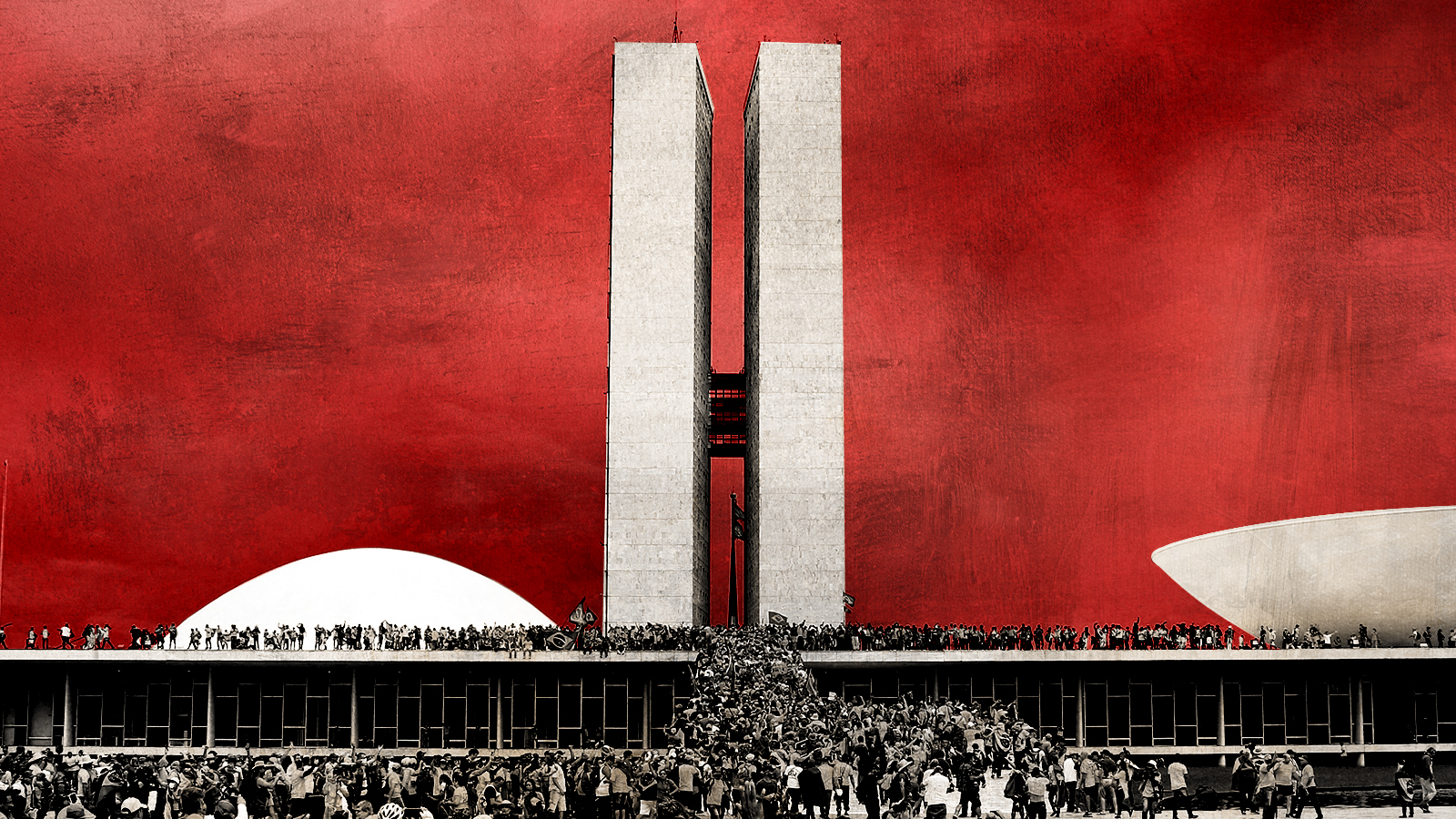
A free daily email with the biggest news stories of the day – and the best features from TheWeek.com
You are now subscribed
Your newsletter sign-up was successful
The burbling political tension in Brazil finally boiled over as supporters of former right-wing President Jair Bolsonaro stormed the country's government buildings on Jan. 8 in an all-too-familiar scene. Here's everything you need to know:
What was the build-up to the attack?
Pressure has been mounting in Brazil ever since Bolsonaro lost his re-election bid to challenger Luiz Inácio Lula da Silva, known as Lula, in October 2022. While Bolsonaro, a right-wing populist, eventually came to accept his defeat, he made false claims of widespread voter fraud in the months leading up to Lula's Jan. 1, 2023 inauguration.
The allegations were not a new occurrence. Bolsonaro, who came into office in 2019, had spent years spreading misinformation about Brazil's election process, including allegations of fraud and claims that hackers had tried to steal the election from him, The New York Times reports. "Those claims are false, according to Brazil's election officials, fact-checking agencies, and independent election-security experts who have studied the country's electronic voting system," the Times noted. "Yet in speeches, interviews, and hundreds of posts on social media, the president has consistently and methodically repeated those baseless claims and many others about Brazil's voting system."
The Week
Escape your echo chamber. Get the facts behind the news, plus analysis from multiple perspectives.

Sign up for The Week's Free Newsletters
From our morning news briefing to a weekly Good News Newsletter, get the best of The Week delivered directly to your inbox.
From our morning news briefing to a weekly Good News Newsletter, get the best of The Week delivered directly to your inbox.
Fueled on by Bolsonaro's claims, the outgoing president's supporters have been protesting since his loss, continuing after Lula was inaugurated at the beginning of 2023. Even after Bolsonaro left Brazil for the U.S. prior to Lula's swearing-in, the tensions among protesters continued to build.
What happened at the Three Powers Plaza?
In the days leading up to Jan. 8, Bolsonaro's supporters had been camping out at the Three Powers Plaza in the nation's capital, Brasília. The plaza is home to the key buildings of all three of Brazil's branches of government: the National Congress building, the Supreme Federal Court building, and the Planalto Presidential Palace.
While the protesters had mostly been peaceful, that changed on Jan. 8, when a massive crowd of Bolsonaro supporters stormed all three buildings in an apparent attempt to reinstate the ousted president. Videos from local media obtained by The New York Times and The Associated Press showed the protesters forcing their way into the trifecta of buildings representing Brazil's democracy.
The rioters smashed windows and clambered over barricades to get onto the roofs of the buildings. Footage from inside the buildings showed people making their way through the offices of top officials in the Planalto Palace, as well as ransacking the upper chamber of the National Congress building. In the Supreme Federal Court building, a similar scene took place, with rioters smashing windows and breaking in. The Times additionally reported that the rioters were also attacking journalists and carrying "bladed weapons."
A free daily email with the biggest news stories of the day – and the best features from TheWeek.com
Within a few hours, the Brazilian military reportedly re-took control of the plaza, and hundreds of people were arrested.
How was Brazil's Jan. 8 similar to the Jan. 6 Capitol riot?
As numerous media outlets, including The New York Times, USA Today, and The Washington Post noted, the Brazilian riots draw obvious parallels to the Jan. 6, 2021 attack on the U.S. Capitol, which unfolded in an eerily similar manner and for eerily similar ends.
While the attack in Brazil, unlike the U.S., seemed to target all three branches of government and appeared larger in scope than Jan. 6, the two events seemed to emerge from the same place: a series of falsehoods fanned by Bolsonaro or, in the case of the United States, by former President Donald Trump, about their respective election losses.
"The similarities of Brazilian far-right mobs storming Congress, the Supreme Court, and Presidential Palace with the Jan. 6 insurrection of the Capitol are not coincidental," Robert Muggah, co-founder of the Rio de Janeiro think tank Igarapé Institute, told the Post. "Like their MAGA counterparts, Bolsonaro supporters have been fed a steady diet of misinformation and disinformation for years, much of it modeled on the narratives peddled by far-right influencers in the U.S."
Axios noted how Trump's false claims of widespread voter fraud were echoed for months by Bolsonaro. The latter, unlike Trump, reportedly accepted his defeat early on — though he never conceded the election, allowing his supporters to continue promulgating the lie.
Where does Brazil go from here?
"The protests in Brasília tried to undermine Lula's governability, but in practice, they undermined Bolsonaro's credibility as an opposition leader," Thomas Traumann, a Brazilian journalist, told Americas Quarterly. Brian Winter, the publication's editor-in-chief, agreed, "This was a disaster for Bolsonaro, I think," he wrote. "Given his self-imposed exile in Florida, and relative silence since losing the election, the race to succeed him as the leader of Brazil's conservative movement will now gain even more momentum. Just as Jan. 6 accelerated Trump's decline, we are already seeing opposition figures distance themselves from the former president."
Yes, Brazil's Jan. 8 is "yet another failed attempt by the extreme right to undermine democracy," Valentina Sader, the associate director and Brazil lead at the Adrienne Arsht Latin America Center, told the Atlantic Council, an international affairs think tank. But "amid global trends of declining democratic freedoms and political instability across Latin America and the Caribbean, which country is the next target?"
In The Atlantic, Anne Applebaum made the case that "we should … get ready to help the Brazilian government in its quest for justice. We should help it pursue financial ties, political relationships, or other connections between American and Brazilian insurrectionists, including links between Trump and Bolsonaro, if they are significant" because "democratic revolutions have long been contagious. Now we know that antidemocratic revolutions can be too."
What about the people responsible?
In the aftermath of Jan. 8, it does seem that the wheels of justice are beginning to turn — albeit slowly. Brazilian officials have charged numerous alleged rioters with trying to stage a coup. Prosecutors seem to be taking the charges very seriously, as they even asked for the accused to be put behind bars as a preventive measure. They also seized over $7 million worth of assets from those charged.
Moreover, the question remains of what to do about Bolsonaro, who remains in Florida. Many American officials have called for him to be sent back to Brazil to face trial. While he has not yet been charged, the country's Supreme Court has included him in their overall investigation of the attack. So while it remains to be seen whether or not he will actually be extradited by Brazilian authorities, political consultant Thomas Traumann told Time Magazine that "There's no doubt that Bolsonaro inspired those people … and what they wanted was to create a social chaos so that the army would intervene, throw Lula out and run a new 'free' election where Bolsonaro would win."
"Bolsonaro is directly responsible for what we saw," Brazilian journalist Gustavo Ribeiro also told Time, "because he has for years pitted his supporters against democratic institutions [and] sown distrust in the electoral system."
Jan. 17, 2023: This article has been updated throughout with additional information.
Justin Klawans has worked as a staff writer at The Week since 2022. He began his career covering local news before joining Newsweek as a breaking news reporter, where he wrote about politics, national and global affairs, business, crime, sports, film, television and other news. Justin has also freelanced for outlets including Collider and United Press International.
-
 The Week Unwrapped: Do the Freemasons have too much sway in the police force?
The Week Unwrapped: Do the Freemasons have too much sway in the police force?Podcast Plus, what does the growing popularity of prediction markets mean for the future? And why are UK film and TV workers struggling?
-
 Properties of the week: pretty thatched cottages
Properties of the week: pretty thatched cottagesThe Week Recommends Featuring homes in West Sussex, Dorset and Suffolk
-
 The week’s best photos
The week’s best photosIn Pictures An explosive meal, a carnival of joy, and more
-
 'Dead' woman nearly suffocated in morgue bag
'Dead' woman nearly suffocated in morgue bagTall Tales And other stories from the stranger side of life
-
 Is the 'vibecession' over?
Is the 'vibecession' over?Speed Read The IMF reported that the global economy is looking increasingly resilient. Is it time to start celebrating?
-
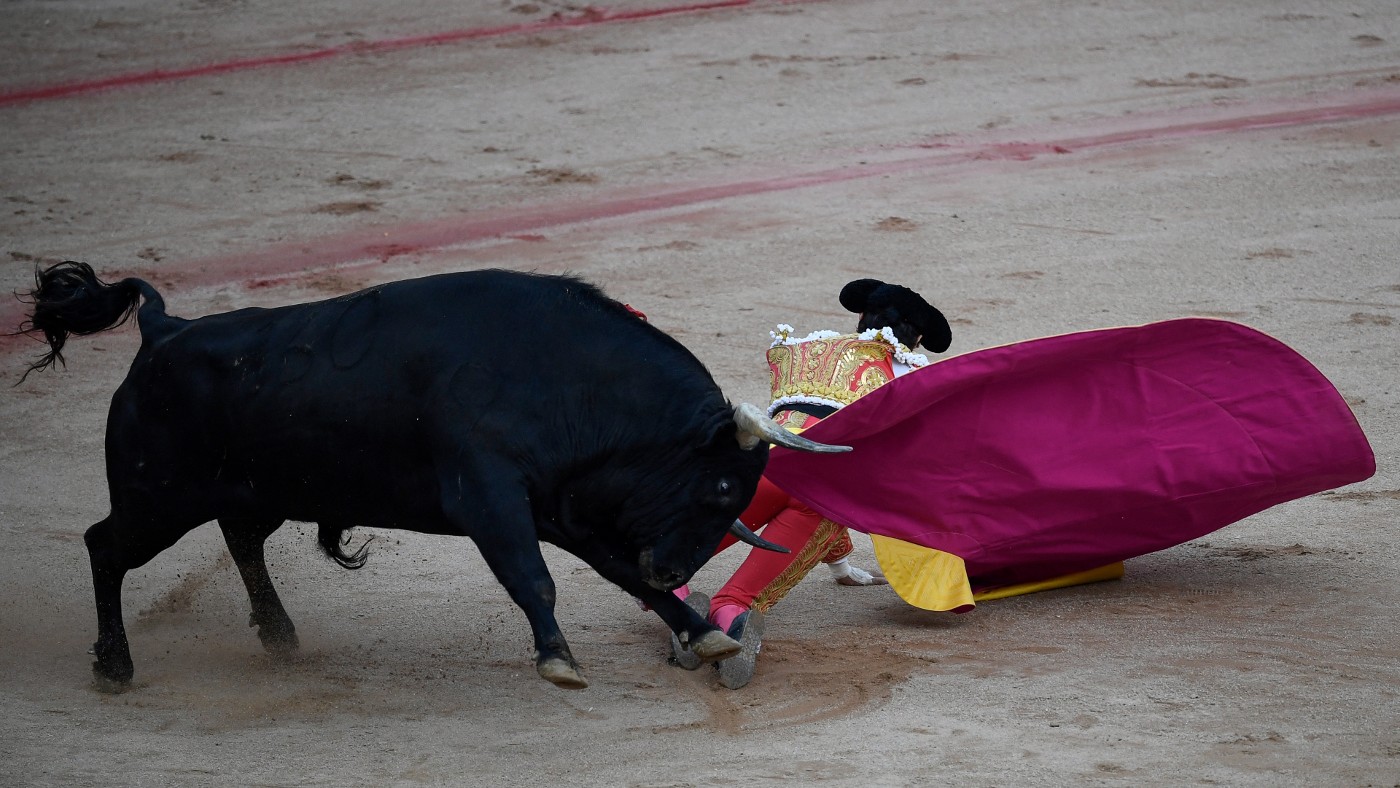 Bull gores the ‘Messi of matadors’
Bull gores the ‘Messi of matadors’feature And other stories from the stranger side of life
-
 The U.S. veterinarian shortage crisis
The U.S. veterinarian shortage crisisSpeed Read With an anticipated shortage of 15,000 vets by 2030, it will be harder to get care for pets
-
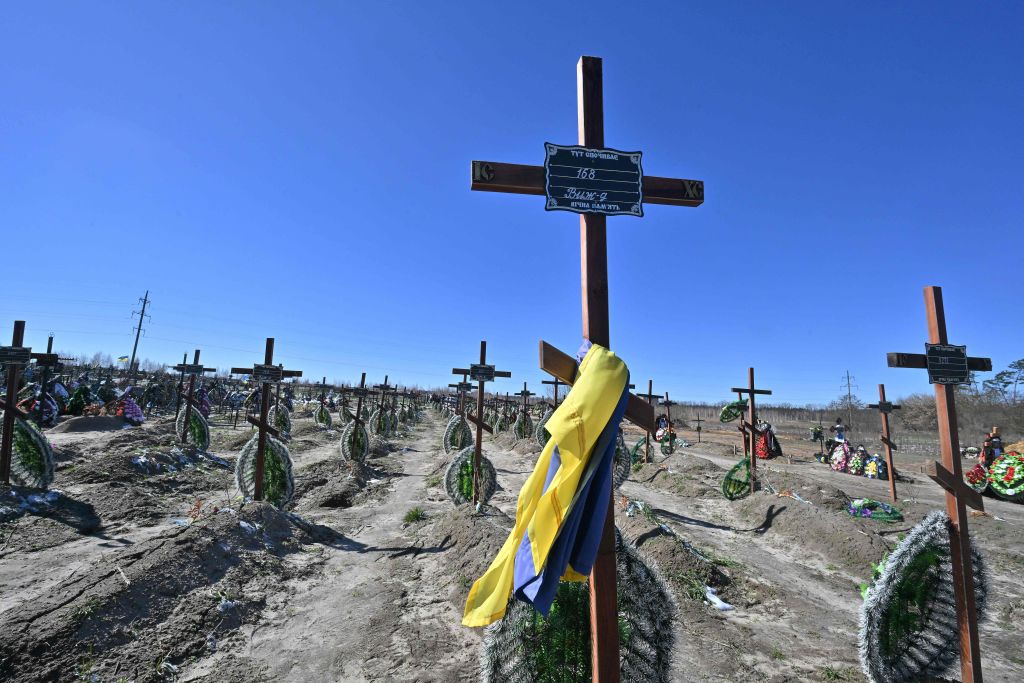 Inside Russia's war crimes
Inside Russia's war crimesSpeed Read Occupying forces in Ukraine are accused of horrific atrocities. Can they be held accountable?
-
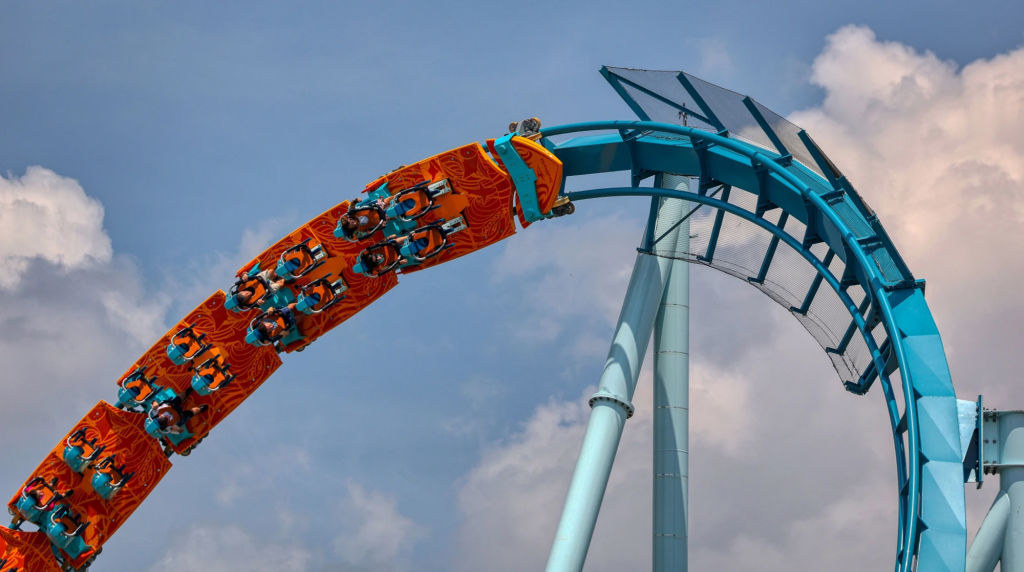 Is it safe to ride a roller coaster?
Is it safe to ride a roller coaster?The Explainer A pair of startling events have shined a light on amusement park safety
-
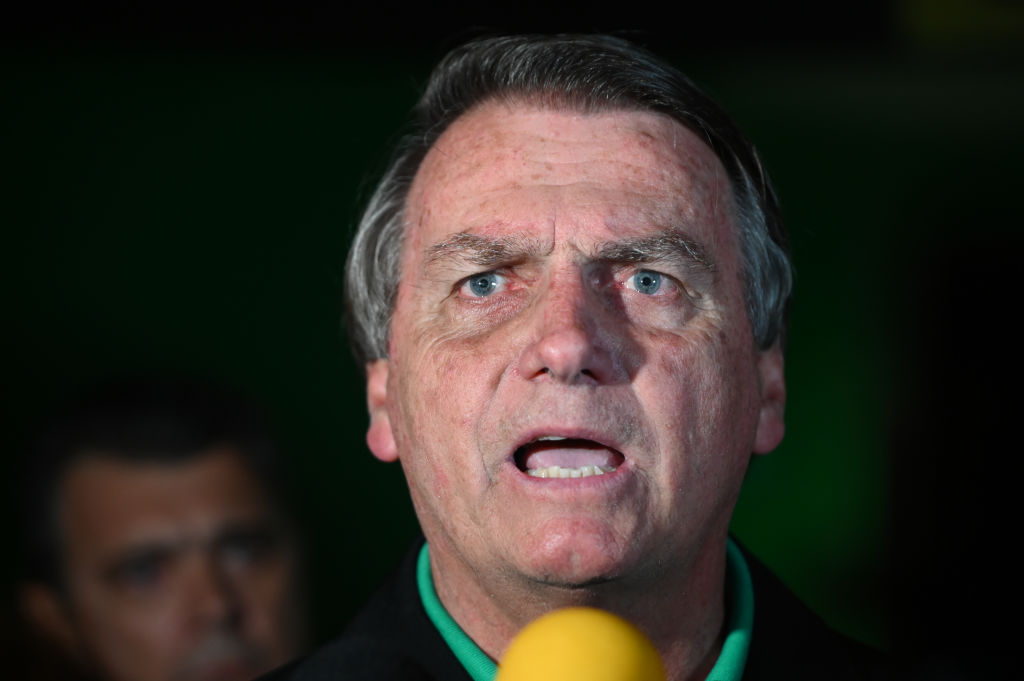 Brazil's Bolsonaro banned from holding public office until 2030
Brazil's Bolsonaro banned from holding public office until 2030Speed Read
-
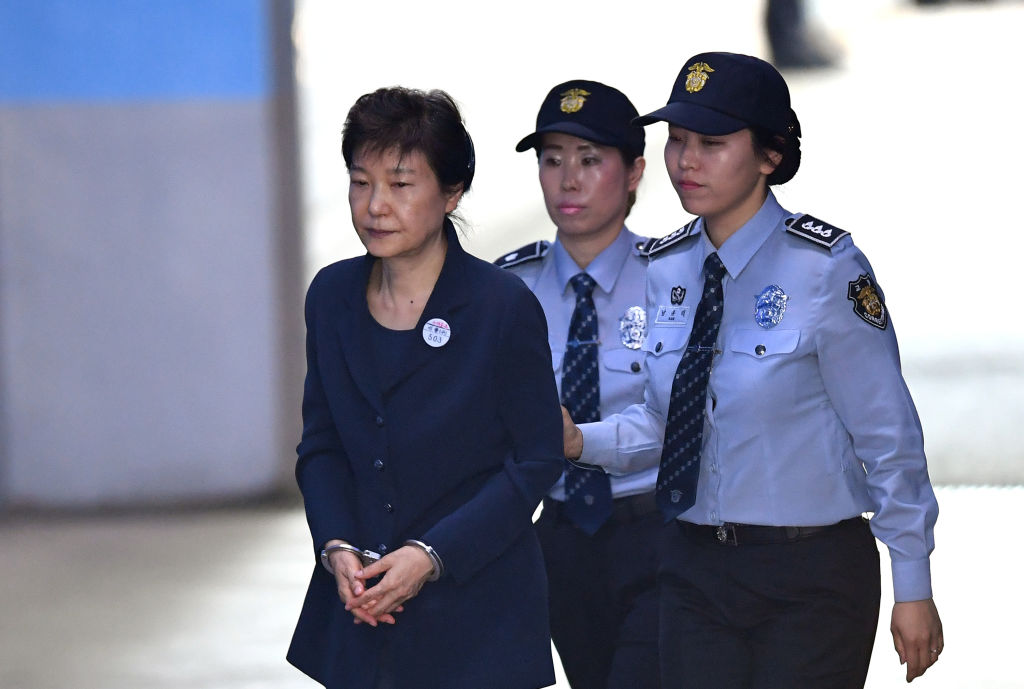 World leaders who have been charged or imprisoned
World leaders who have been charged or imprisonedThe Explainer Heads of state being put behind bars is not a rare occurrence
